Social media is one of the most important marketing tools companies have to connect with people and promote their products. However, measuring the success of social media campaigns can be challenging. There are a variety of different social media metrics to choose from, and the ones best for your business will depend on your marketing goals.
In this article, we’ll tell you about the 13 social media metrics you should track to effectively measure the success of your campaigns.
[Free Guide] The ultimate social media marketing guide for local businesses
Download Now
Table of contents
- What are social media metrics?
- Setting goals and selecting social media metrics
- Awareness metrics
- Engagement metrics
- Conversion metrics
- Audience and sentiment metrics
- Insights metrics
- Return on Investment (ROI) metrics
- Why tracking social media metrics is so important
- Frequently asked questions about social media metrics
- Track your social media performance with Birdeye Social
What are social media metrics?
Social media metrics are a way of measuring and tracking the performance of your social media efforts. They help gain insights, track growth, and continually optimize your social media strategies. These metrics can range from engagement rate to measuring your audience’s sentiment toward your posts and brand. Although all social media metrics carry a level of importance, understanding which metrics best align with your goals will keep you focused and help you measure success more accurately. Having this understanding will help you make better strategic decisions with your social media campaigns over time.
Setting goals and selecting social media metrics
Setting social media goals will keep you focused on the bigger picture and help you evaluate your post’s performance. Outside of creating clear objectives for your social media plan, your goals will also help you decide which social media metrics to track.
For instance, if one of your goals is to increase brand awareness, you’ll want to make sure you are tracking metrics like reach and engagement rate. If conversions mean more to your strategy, then click-through rate and traffic from social media would be ideal. By defining your goals before launching your campaign, you’ll get a better understanding of which social media metrics make the most sense for your business.
Awareness metrics
Brand awareness is one of the most important metrics to track on social media. It refers to how well your followers know your company and its products or services. There are a number of ways to measure brand awareness. Here are some of the most important ones to keep your eye on.
1. Social reach
Social reach is commonly used to measure the success of campaigns by gauging the number of people who were exposed to them. It’s the total number of people that have encountered your post, content, or advertisement across all platforms – whether it was clicked on, shared, or just scrolled past. The perimeters of social reach change frequently, so staying up-to-date with this metric will help you get an understanding of how large a wave you’ve made in the social media sea.
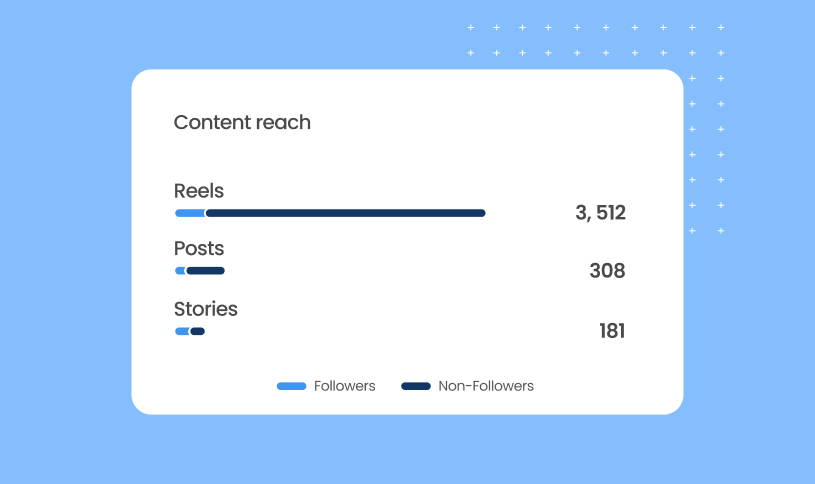
2. Impressions
Impressions measure how many times your content has been seen. However, this doesn’t necessarily mean it was clicked on – just that it was present on a person’s timeline or news feed. Impressions give you an idea of how much exposure your content is getting.
3. Follower growth
Measuring your follower growth over time is key to keeping track of how well your content is resonating with followers. It’s also a way to measure how successful your business is in reaching and engaging followers. Understanding your growth rate can help gather insight into why people follow or unfollow, letting you adjust strategies accordingly.
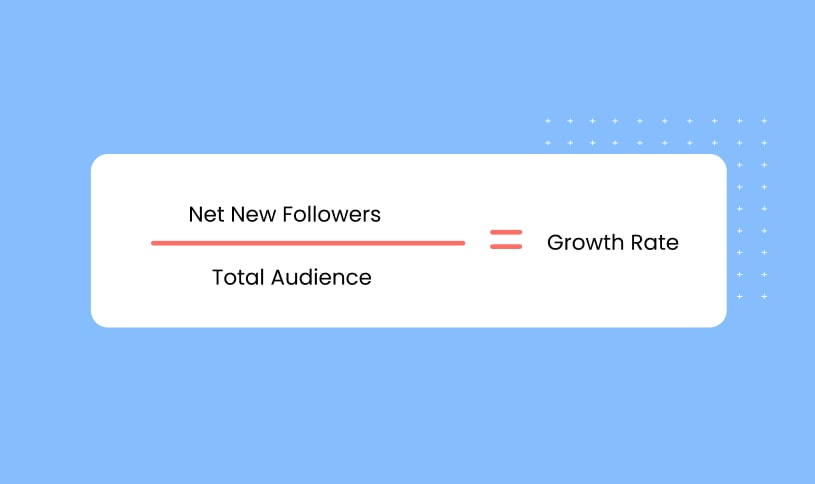
Engagement metrics
Social media engagement metrics are a measure of how active and involved people are on your social media pages. They can tell you a lot about the overall health of your social media presence and can help you track how well your marketing campaigns are doing. Tracking these metrics can be used to fine-tune your social media marketing strategy and make sure that you’re reaching the right people with your content.
4. Engagement rate
Engagement rate measures how much interaction your content is getting from followers – for example, the number of likes, comments, and shares on your posts. When measured over a specific period of time, social media engagement metrics can give insights into how popular and successful your page or profile is overall. If you’re getting lots of positive engagement consistently, then you know you’re on the right track.
5. Video views
Video has become the content of choice for many followers and businesses. In fact, nearly all companies that have used videos on social media have gained at least one new customer. Because of this, measuring your video views has become increasingly vital. Knowing this information will help you understand which videos are the most popular with your followers or if you need to rework this content.

Conversion metrics
Conversion metrics for social media are important to track in order to determine the effectiveness of a social media campaign. By tracking these metrics, businesses can see how many people are being converted from social media followers into customers.
6. Conversion rate
This metric measures how many people that viewed or interacted with your content actually took some desired action like signing up for a newsletter, downloading an ebook, or making a purchase. If your conversion metric is high, then you know your content is working. However, if your conversion rate is low, you may need to adjust your content or focus more on building relationships with followers. To calculate the conversion rate, simply divide the number of conversions by the total number of views or interactions.
7. Click-through rate
Click-through rate (CTR) measures the number of clicks a post gets in relation to the number of times it’s viewed. Having a high CTR is desirable because it means that people are engaging with your content enough to actually click on it. A high CTR signifies creative material and an effective strategy that appeals to your followers.
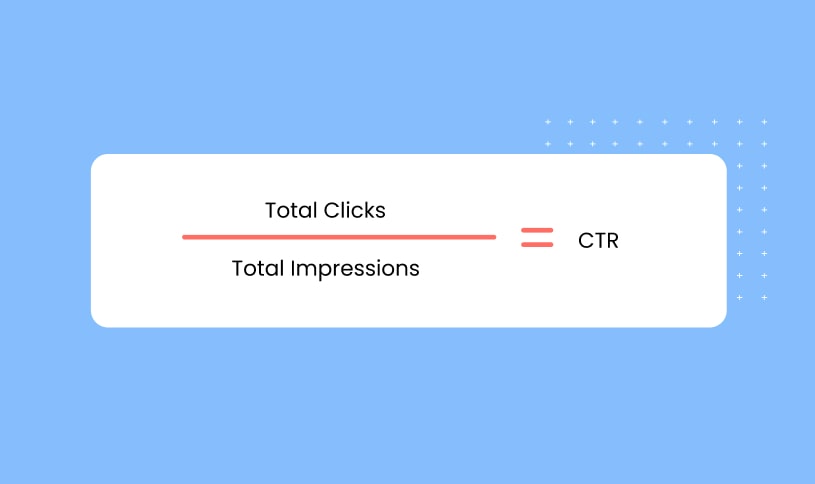
Audience and sentiment metrics
Social media provides businesses with a unique opportunity to connect with customers and create a two-way dialogue. However, in order to make the most of this connection, it’s important to track and measure social media metrics such as audience engagement and sentiment. This will help you determine whether your social media strategy is effective and identify areas that need improvement.
8. Social share of voice
Social share of voice (SSoV) lets you know how much people are talking about your brand on social media. SSoV can be used to compare the number of conversations happening about your brand versus competitors and even industry influencers. This will give you an idea of how visible your brand is in comparison to others.
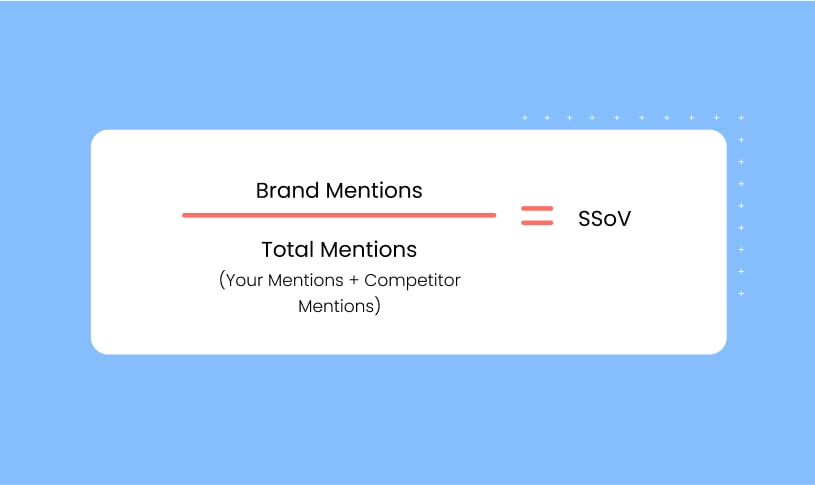
9. Net promoter score
The net promoter score (NPS) helps you understand customer sentiment. It’s a simple way to gauge how customers feel about your brand and whether they would recommend it to friends or family. Also, NPS scores can help you target specific followers for participation in surveys or referrals to help improve your business and spread the word about your brand. To get the NPS simply subtract the number of promoters from the number of detractors and divide that by the total number of respondents.
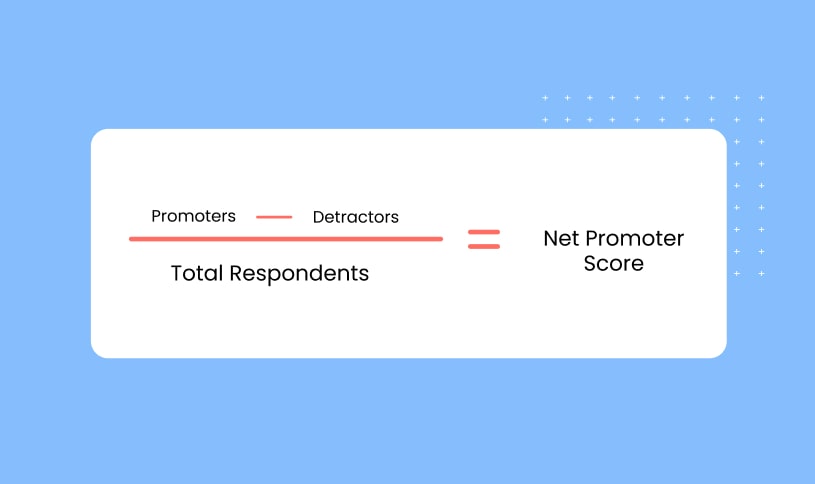
Insights metrics
Social media data provides valuable insights that businesses can use to improve their marketing strategies. These insights can then be used to understand where your time, effort, and money should be allocated for more effective campaigns.
10. Traffic to websites
Sharing content on social media is a good way to drive people to your website. Once there, customers can take a deeper dive into your products or services and make a purchase. Tracking website traffic from social media will help you see which social channels are driving the most clicks and conversions – focusing your efforts on the content and channels that are producing positive results.
11. Channel reporting
Channel reporting gives you a detailed breakdown of what kind of engagement different social media channels are attracting. This will help you identify which platforms are performing the best and tailor your content to those specific channels. By understanding how your followers engage with each platform, you can create more effective campaigns and optimize their performance.
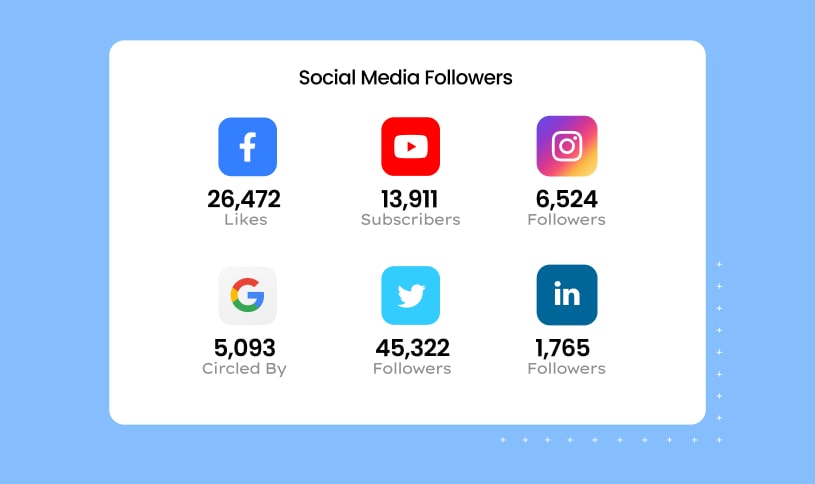
Return on Investment (ROI) metrics
Social media ROI metrics are becoming increasingly important as businesses try to quantify the value of their social media efforts. Tracking these metrics can help businesses determine whether their social media campaigns are paying off and worth continuing.
12. Cost-per-click
Cost-per-click (CPC) measures how much it costs to acquire a customer through social media. To calculate this number, just divide the cost of a paid ad campaign by the number of clicks. Knowing this information can help you identify the most cost-effective campaigns and channels so that you can maximize your budget and get the best return on investment.
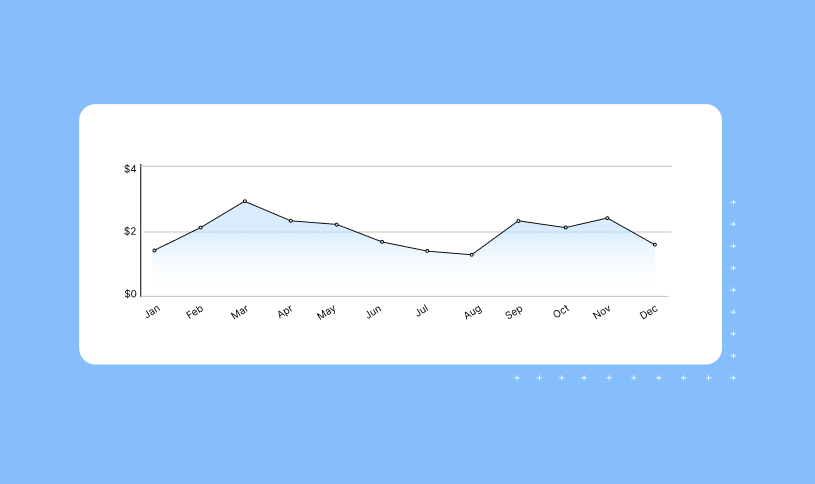
13. Cost per thousand impressions
Another good ROI metric is cost per thousand impressions (CPM). This metric tells you how much it costs to reach 1,000 people with your paid ads on social media. For example, if your ad campaign totaled $300 and you received 150,000 impressions from that spend, then your CPM would be $3. Having this information will help you determine which paid campaigns deserve further investment and which to scale back on.
Why tracking social media metrics is so important
Tracking metrics and performing social media analytics are essential to any successful online marketing strategy. Metrics help you measure the success or failure of campaigns and understand what content is resonating most with your target audience. This will help you identify trends and craft a more effective strategy going forward.
By regularly tracking your social media performance, you can learn what works best on each platform and better target potential customers, increasing both engagement and revenue potential. Most importantly, tracking social media metrics gives you an overall view of how your brand is perceived online.
Frequently asked questions about social media metrics
Social media metrics are data and statistics that measure the performance of your social media efforts. These metrics can help understand performance and adjust accordingly.
It depends on the specific metric. For example, engagement rate measures the number of interactions a post receives. Impressions measure the total number of people who saw a post in their newsfeeds.
It’ll depend on your industry and goals, but some of the most important social media metrics include follower growth rate, engagement, impressions, views, and conversions.
You can always use the analytics tools built into each social platform. However, with a social media management platform, you can set up dashboards and track all your metrics in one place.
Social media key performance indicators (KPIs) will vary depending on your business goals. Some common KPIs include website traffic from social media, leads or sales generated by social media, and brand awareness metrics.
A primary metric for social media companies is user engagement, which is a measure of how often and how long users interact with content published on a platform.
Determine which metrics are most important for your brand. Use social media analytics tools to track this data over time. Be sure to regularly monitor the data and adjust campaigns accordingly.
Track your social media performance with Birdeye Social
Juggling multiple social media profiles can be challenging, especially when it comes to analytics and reporting. By connecting all your social networks into a single dashboard using Birdeye Social, you can track and measure your social media performance across all platforms. Book a call with a Birdeye representative and start making data-driven decisions today.

This blog post is part of our Social Media Management Guide
Originally published









